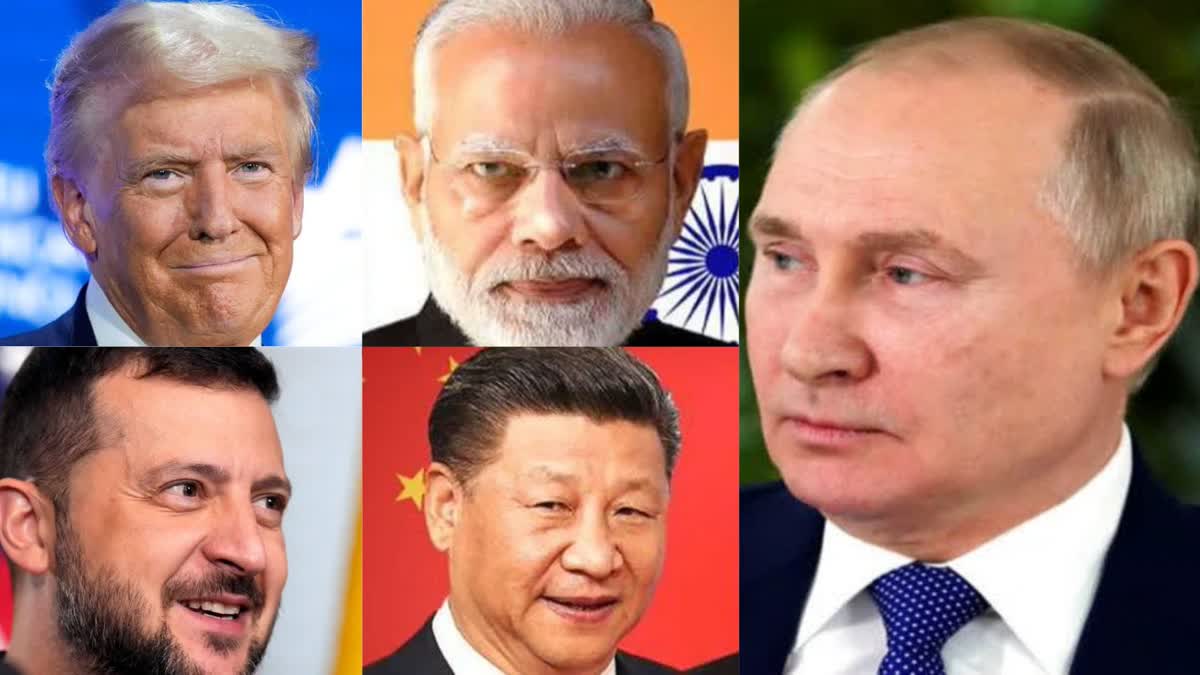New Delhi: On a day when Moscow signed a revised nuclear doctrine declaring that a conventional attack on Russia by any nation that is supported by a nuclear power will be considered a joint attack on Russia, the Kremlin has announced that Russian President Vladimir Putin will visit India soon and the dates for this are being finalised.
“We welcomed Prime Minister (Narendra) Modi twice this year in our country,” Kremlin spokesperson Dmitry Peskov said while virtual addressing an event organised by the Russian Sputnik news agency in New Delhi Tuesday. “We hope that soon we will figure out the dates of President Putin’s visit to India.”
In July this year, Modi and Putin had met in Moscow for the annual India-Russia bilateral summit. This was Modi’s first visit to Russia since the invasion of Ukraine in February 2022. India has been advocating a resolution to the Russia-Ukraine conflict through dialogue and diplomacy.
And then, in August this year, Modi went to Ukraine in what was the first prime ministerial visit from India to that country since its formation in the aftermath of the breakup of the Soviet Union. During that visit, Ukrainian President Volodymyr Zelenskyy had said that he informed Modi that he would like India to host a peace summit on Ukraine. Ukraine, Zelenskyy said, was looking for a country in the Global South to host such a summit.
Modi and Putin then again held a bilateral meeting on the sidelines of this year’s BRICS (Brazil, Russia, India, China, South Africa) Summit hosted by Russia in the city of Kazan in Tatarstan last month.
It is in light of all this that the Kremlin’s announcement of Putin’s visit to India “soon” assumes significance. It means that the annual bilateral summit between the two countries, usually held at around yearly intervals, might this time be held within less than a year.
The tradition of annual summits began with the signing of the India-Russia Strategic Partnership Agreement in 2000 during Putin's visit to India. This agreement institutionalised high-level interactions between the two nations and emphasised their mutual commitment to strengthen ties. In 2010, the partnership was elevated to the level of a Special and Privileged Strategic Partnership.
However, the COVID-19 pandemic disrupted this annual dialogue. Prior to this year’s July summit, the last annual summit was held way back in 2021. While the New Delhi-Moscow relationship remains strong, challenges like the impact of Western sanctions on Russia in the face of the Ukraine war, India’s increasing engagement with the West, and Russia’s growing proximity to China require careful management. Both sides recognise the importance of sustaining their partnership amidst a rapidly changing global order.
According to Harsh V Pant, Professor of International Relations with King’s India Institute at King’s College London and Vice-President (Studies and Foreign Policy) at the Observer Research Foundation think tank, Putin’s upcoming visit to India should also be seen in the light of Donald Trump assuming office as the President of the US in January next year.
“You see, Putin has not visited India since the start of the Ukraine war,” Pant told ETV Bharat. “With Modi visiting Russia twice this year, Putin feels that it is time to pay a reciprocal visit to India. And he wants to do that before Trump assumes office.”
He explained that once Trump comes to office, there will be a lot of uncertainties.
“That’s why Putin wants to come and lay out the roadmap of India-Russia ties in the age of Trump,” he said.
Pant also pointed out the China factor in connection with Putin’s upcoming visit.
“As of now, Russia and China are the closest of allies,” he said. “But once Trump comes to power, there will be a lot of pressure on China. In such a scenario, India will become very influential. Russia is not present in the Indo-Pacific landscape.”
India, along with the US, Japan and Australia are part of the Quad that is working for a free and open Indo-Pacific in the face of China’s hegemony in the region that stretches from the east coast of Japan to the east coast of Africa.
